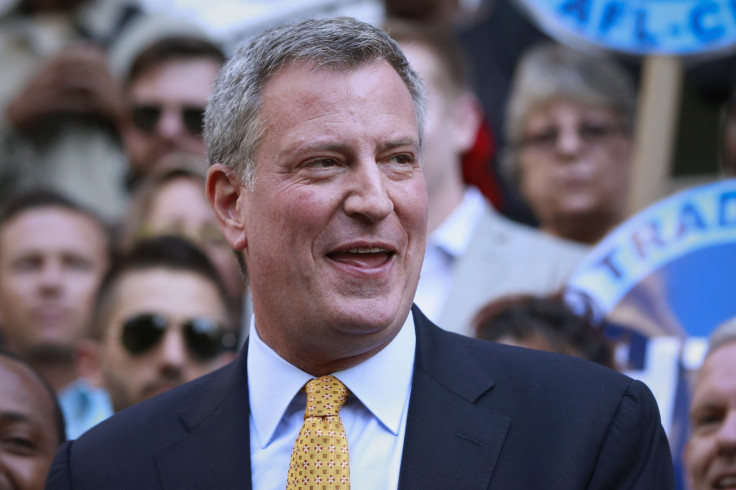
More likely than not, Democrat Bill de Blasio is going to be the next mayor of New York City. He holds a commanding lead over his Republican opponent Joe Lhota, a former deputy mayor and chief of the city's transportation authority -- 66 percent of likely voters go for him compared to Lhota's 25 percent -- and President Barack Obama just lent him his support. Readers of the New York Times on Sunday might've caught an article that shines a light on the candidate's foray into Nicaraguan political struggles as a 26-year-old leftist.
According to the paper, in 1987, after studying Latin American politics at Columbia University and becoming conversational in Spanish, de Blasio got a job with the Catholic social justice group the Quixote Center at their offices in Maryland. A political organizer, he helped coordinate the shipments of millions of dollars in food, clothing and supplies to Nicaragua, where the Sandinista leftists who had removed dictator Anastasio Somoza and taken power in 1979 were struggling to fight off a counter-insurgency backed covertly by the administration of US President Ronald Reagan. After a year of work at the Quixote Center, de Blasio missed New York, and accepted a job there with a non-profit focused on improving health care in Central America. But before he moved to the city to start that job, he took a 10-day trip to the Nicaraguan city of Masaya, where he volunteered briefly at a ramshackle health clinic that distributed medicine and food to families in the area.
There, de Blasio told the Times, he had an "epiphany" in the form of a map posted on the wall which showed exactly where every family in town lived so that the clinic's doctors could more effectively target their public health efforts, including community education on immunizations and hygiene. "There was something I took away from that -- how hands-on government has to be, how proactive, how connected to the people it must be," de Blasio said. And upon his return to New York, the young de Blasio continued to tout the Sandinistas' cause, raising funds for them and subscribing to the party's newspaper during his volunteer efforts with the Nicaragua Solidarity Network of Greater New York -- a group which the Times describes as being composed of "a ragtag team of peace activists, Democrats, Marxists and anarchists".
In 1990, he told the New York Times the Sandinistas "gave a new definition to democracy" and added, "They built a democracy that was striving to be economic and political, that pervaded all levels in society." The paper concludes that as the young de Blasio advanced in the New York City political scene, he started focusing on more local causes.
RELATED: Junot Diaz Endorses Bill De Blasio In SEIU Ads, Slams Bloomberg
© 2025 Latin Times. All rights reserved. Do not reproduce without permission.




